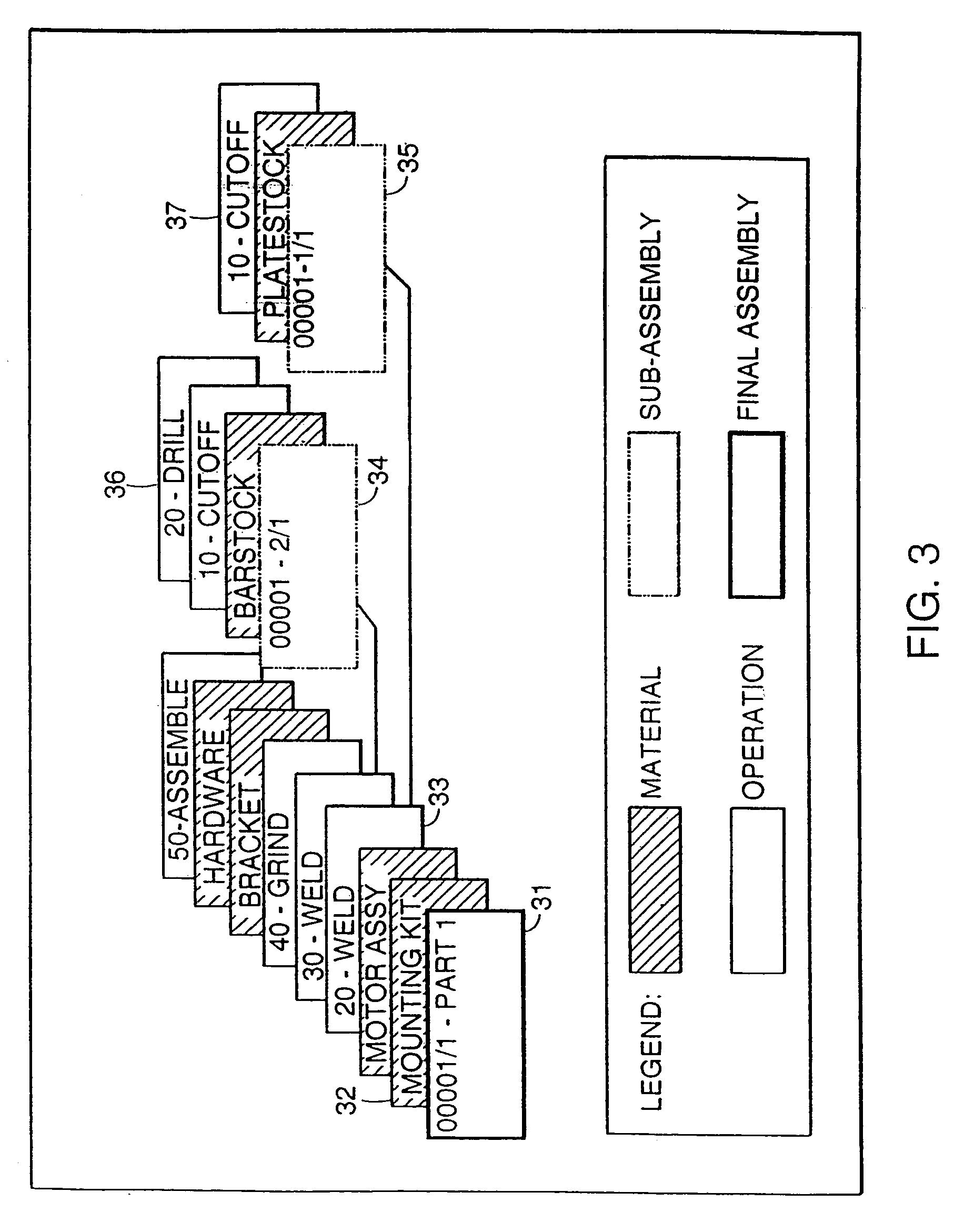Method and apparatus for scheduling work orders in a manufacturing process
a manufacturing process and work order technology, applied in the field of computerized system for scheduling work orders, can solve the problems of difficult to obtain timely, accurate manual scheduling, and limited scope of mrp to deal only with material requirements
- Summary
- Abstract
- Description
- Claims
- Application Information
AI Technical Summary
Benefits of technology
Problems solved by technology
Method used
Image
Examples
Embodiment Construction
[0039]The scheduling system of the present invention may be used in any manufacturing facility. The system may be most useful in a facility for manufacturing discrete products, such as a facility that manufactures products according to individualized customer specifications.
[0040]The scheduling system may be used to schedule all work orders that have been accepted by the manufacturer. The system may also be used to determine a proposed schedule and / or a proposed delivery date for a potential work order in response to an inquiry from a customer or other interested person.
[0041]The scheduling system of the present invention may be implemented using a variety of personal computers. According to a preferred embodiment of the invention, the scheduling system is implemented using an IBM-compatible computer having not less than 8 megabytes of random access memory (RAM), a 486DX or higher Intel™ microprocessor running at 33 megahertz or higher, and sufficient hard disk space to store the so...
PUM
 Login to View More
Login to View More Abstract
Description
Claims
Application Information
 Login to View More
Login to View More - R&D
- Intellectual Property
- Life Sciences
- Materials
- Tech Scout
- Unparalleled Data Quality
- Higher Quality Content
- 60% Fewer Hallucinations
Browse by: Latest US Patents, China's latest patents, Technical Efficacy Thesaurus, Application Domain, Technology Topic, Popular Technical Reports.
© 2025 PatSnap. All rights reserved.Legal|Privacy policy|Modern Slavery Act Transparency Statement|Sitemap|About US| Contact US: help@patsnap.com



